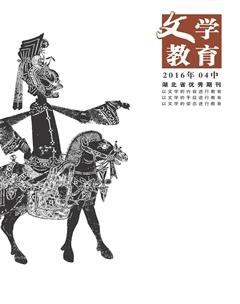浅谈情态动词的虚拟用法
苏永兰
请看下面的小对话:
—I’m sorry.I shouldn’t have shouted at you the other day.
—Forget it.I was a bit out of control myself.
【解析】“对不起,前几天我不应该朝你大喊大叫的。”“不要放在心上。我自己有点情绪失控。”shouldn’t have done sth.表达的是“本不应该做某事,但已经做了。
情态动词是英语动词中最难把握的一类,也是各种考试中的常考知识点。对于情态动词的考查分布在听力、语法单选、完形填空、改错等题型中,书面表达中如果能正确灵活地运用情态动词,会是一个得分的亮点。命题的热点主要集中在三个方面:基本用法辨析;情态动词表示推测的用法辨析;情态动词在虚拟语气中的运用;而对情态动词的虚拟意义的考查主要是针对“情态动词+have done”。下面我们就来总结一下这种用法,
一.could/may/might havedone:本来可以做到、实际上没做到,经常带有责备或遗憾的意味。
1.You could have passed my examination easily,but you made too many stupid mistakes.
你本来是能轻易通过考试的,但你出了很多愚蠢的错误。(实际上考试不及格)
2.He might have given you more help,even though he was very busy
即便他当时很忙,本来也是可以多给你一些帮助的。(实际上没给你更多的帮助)
二.couldn’t have done本来做不到、实际上做到了。要注意,虚拟意义不能用can。
He couldn’t have passed the exam without your help.
如果没有你的帮助,他本来是不能及格的。(实际上及格了)
【注意】这里的“不可能”并不是表示推测,而是表示能力:不能够及格,及格不了。
三.should或ought to的虚拟意义,包括以下两种情况:
(一)should/ought to have done本来应该做、但实际上没做
1.I told Sally how to get there,but perhaps I should have written it out for her.
我告诉了萨利如何去那里;不过,或许我该给她写出来。(实际上没写出来)
(二)shouldn’t/oughtn’t to have done本来不该做、实际上做了,常带有责备、自责的意味。
2.You oughtn’t to have interrupted the meeting to tell me that; you could have come to tell me afterwards.
你本不应该打断会议跟我说那件事;你本可以事后告诉我。(实际上打断了)
【补充】用于从句中,表示惊讶、奇怪、不快、赞美等感情:竟然、竟会,此时,既可以用完成式should have done,也可以用一般式should do。
3.It’s wonderful that you should have achieved so much in these years.
这些年你竟然能取得如此大的成就,太棒了。(惊讶、赞美)
4.It was sad to me that they, so poor themselves, should bring me food.
他们自己很贫穷却给竟然给我带来了食物,我很难过(这里的should bring=should have brought)
四.needn’t have done (通常用于否定句)本不必做、实际上做了
1.There was plenty of time. She needn’t have hurried.时间足够了;她本没必要那么匆忙。
2.We needn’t have bought so much food now that Suzie won’t be with us for dinner.既然Suzie不跟我们一起吃饭,我们本没必要买那么多东西。
五.would have done肯定会,用于虚拟语气的主句中,意思是“(肯定)会做,实际上没做”
1.They were abroad during the months when we were carrying out the investigation, or they would have come to our help.
我们做调查的这几个月期间,他们在国外;否则,他们会来帮我们的。(实际上没来帮我们)
2. Had he caught the morning train, he would not have been late for the meeting.
如果他赶上了早上的火车,他就不会开会迟到了(实际上没赶上,迟到了)。
(作者单位:威海职业学院)

